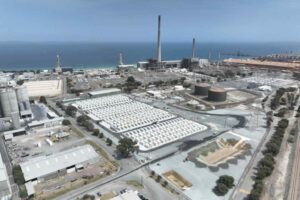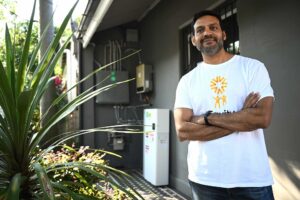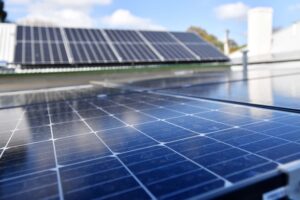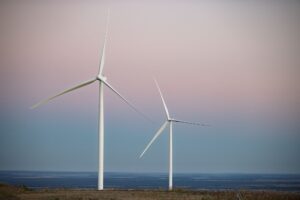The chair of Australia’s largest group of clean energy investors has described the federal Coalition’s push for nuclear power as a “gas Trojan horse,” and a political wedge intended to douse investment in renewables and prolong the use of fossil fuels.
John Martin, CEO of renewables developer Windlab and chair of the Clean Energy Investor Group, on Monday named wedge politics as one of biggest issues holding back the shift to renewables in Australia, describing the current industry status quo as “really, really challenging.”
“Australia is the land of wedges,” Martin told the 2024 Clean Energy Investor Conference in Melbourne.
“When I think of the whole nuclear debate, I don’t see that as really about nuclear. It’s a gas Trojan horse,” Martin told the conference.
“If you do any modeling, what will happen? The coal will go, nuclear will take forever, none of us are going to invest in renewables knowing we can’t compete against government-funded nuclear, [so that] big gap will be filled with gas. So there’s a wedge there that’s being aimed at us.”
Painting renewables as a natural enemy of the environment and wildlife is “another fantastic wedge strategy,” Martin says, that likewise threatens to derail progress on decarbonisation, while doing nothing to address the urgent need to reform Australia’s environment and biodiversity protection rules.
“I met a senior conservative politician who started to tell me, he said, ‘John, I’m really concerned about the koalas’.
“That is the first time this person, he’s quite a good friend, [has been] worried about koalas. And suddenly I realised, you know, it’s a great opportunity, here, to wedge environmentally minded people between … climate change versus biodiversity.”
Environment, and in particular the shortcomings of the federal Environment Protection and Biodiversity Conservation Act, were key topics at the conference, with a presentation from Australian Conservation Foundation CEO Kelly O’Shannassy putting the plight of the nation’s endangered species in stark relief.
“We can’t be getting the balance right if, since the EPBC Act came in place we’ve cleared 7.7 million hectares, or the size of Tasmania, of threatened species habitat,” O’Shannassy said.
“Let’s have an Act that actually does what it says on the can and protects nature, and then we can develop this nation sustainably.”
Speaking on the same panel, Peter Briggs from law firm Herbert Smith Freehills, sees problems on the renewables side of the equation, too.
“I think the renewable sector… has had a very limited impact on biodiversity, as a matter of fact, even though the impost on the industry through the current system has been great.
“So I don’t think we’ve got that balance right either, and I think Kelly [O’Shannassy] and I are on the same page. We need to stop land clearing, there’s no question, and we need to protect areas – there’s no question about that.
“But the question is whether we should be imposing burdens on just one or two sectors and whether the burden being imposed on renewables outweighs the other benefits that the industry actually contributes.”
On both the conservation and development side, the call is for more clarity from the government, which – according to Windlab’s John Martin – includes giving developers a “quick no” when a project is proposed for the wrong spot.
“I don’t believe the wedge that’s being aimed at us, which is, you’ve got to choose [between renewables and the environment],” he said.
” I think you can do both. …It’s not a trade-off.
“In fact, many of us are on the same page. We need to get the same solution, but we’ve got to watch we’re not being wedged by the fossil fuel industry, which is well funded and …organised.”








